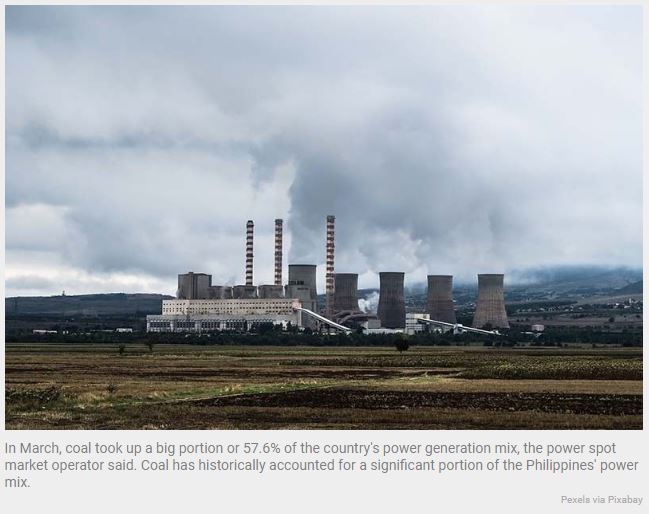Philippine banks still enabling coal projects — report
MANILA, Philippines — Six Philippine banks have enabled coal projects by either underwriting or selling bonds meant to finance these developments, a move that goes against some of their commitments to stop coal funding, according to a new report.
“Banks have not quit coal despite their coal divestment policies,” energy advocacy and bank watchdog group Withdraw from Coal (WFC) said in the report.
Data collected from April 2021 to March 2022 showed that UnionBank as well as the investment arms of BDO, China Bank, Metrobank, Security Bank, and RCBC, participated in listed power firm AboitizPower’s bond issuances which were used to finance two coal projects— GNPower Dinginin and GNPower Mariveles. AboitizPower is described by WFC as the country’s second largest coal developer.
These lenders acted as either joint issue managers, joint bookrunners, joint lead underwriters or selling agents.
WFC’s report this year analyzed disclosures provided by banks; final prospectuses and offer supplements; Thomson Reuters Project Finance International; Philippine Dealing System Holdings Group; non-profit Urgewald’s Coal Financiers Database; Global Energy Monitor; and financial market data provider Refinitiv.
According to WFC, state-run Land Bank was also identified as a bank which was involved as a selling agent in two of the bonds, but the report said it is accredited by the Green Climate Fund- a program that seeks to help developing countries reduce greenhouse gas emissions and adapt to climate change.
“From the Q2 2021 (second quarter 2021) to Q1 2022 (first quarter 2022) period of this report, no coal financing through loans was reported. Instead, it was through underwriting and selling bonds that banks have enabled coal projects, guaranteeing funds that will ultimately be channeled to coal projects,” it said.
WFC said that Security Bank’s participation in the bond issuances “contradicts” the bank’s stand that it will “discontinue the financing of new coal generation power plants.”
The presence of BDO and RCBC also go against their no coal pronouncements, it added.
“There is an urgent need to close this loophole and urge banks to have more transparent financing policies that disclose their participation in bonds intended for coal development,” the report read.
Gerry Arances, WFC co-convenor, said in a statement that these findings indicate that banks managed to “dodge being direct coal financiers by underwriting or selling bonds issued by coal developers.”
WFC Convenor Bishop Gerry Alminaza also called on Philippine banks to fully divest from coal and stop channelling funds in fossil gas.
The banks mentioned in WFC’s report did not immediately respond to Philstar.com‘s questions.
Why does this matter?
Coal divestment is considered as a first step to sustainable financing, which should be followed through by a long-term strategy to divest in other carbon intensive and environmentally-destructive projects, according to WFC.
Among WFC’s suggestions is to establish a fossil fuel divestment strategy which aligns with the world’s goal of keeping the global temperature rise to below 1.5 degree Celsius based on the Paris Agreement on Climate Change, of which the Philippines is a signatory.
The Philippines has committed to reduce its greenhouse gas emissions by 75% by 2030, according to its first nationally determined contribution submitted to the United Nations Framework Convention on Climate Change.
Of the 75% target, majority or 72% will be dependent on the support of developed countries, while the rest will be done with domestic resources.
In October 2020, the Energy department announced a moratorium on endorsing new coal-fired power projects in a bid to shift to a more “flexible” power generation.
The latest Philippine Energy Plan, the country’s comprehensive blueprint, says the Department of Energy wants renewables to make up 35% of the country’s power generation mix by 2030 and 50% by 2040.
In March, coal took up a big portion or 57.6% of the country’s power generation mix, the power spot market operator said. Coal has historically accounted for a significant portion of the Philippines’ power mix.
Source: https://www.philstar.com/business/2022/05/05/2178742/philippine-banks-still-enabling-coal-projects-report


 Thailand
Thailand




